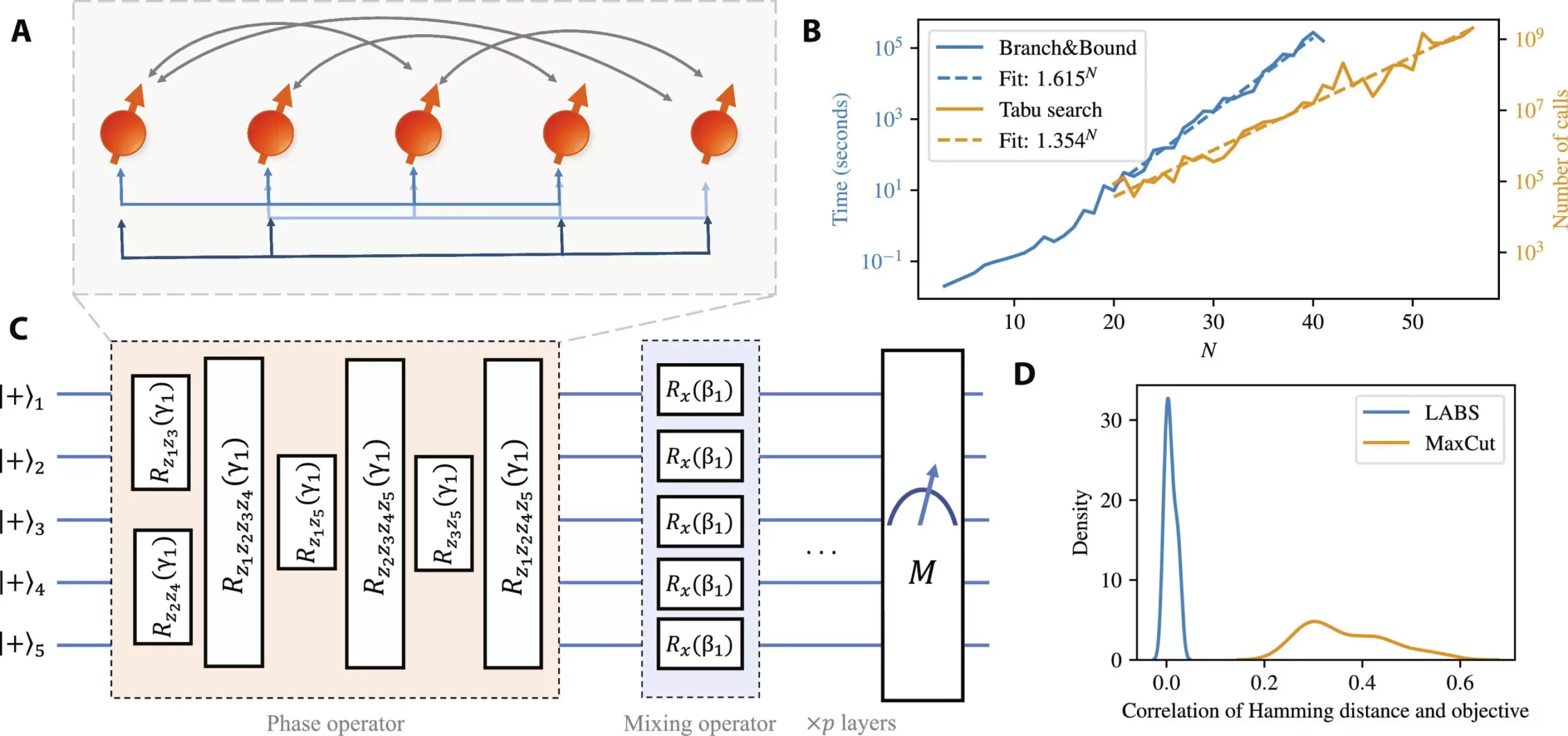Recent advancements in quantum computing have opened up new possibilities for solving complex problems at significantly faster speeds compared to classical methods. A recent paper published in Science Advances highlights the findings of researchers from JPMorgan Chase, Argonne National Laboratory, and Quantinuum regarding a quantum algorithmic speedup for the quantum approximate optimization algorithm (QAOA). This breakthrough has the potential to revolutionize various industries, including logistics, telecommunications, financial modeling, and materials science.
Quantum Advantage and Implementation Costs
The study focused on determining whether a quantum algorithm, specifically QAOA, with low implementation costs could outperform the best-known classical methods. By applying QAOA to the Low Autocorrelation Binary Sequences problem, the researchers were able to showcase the algorithm’s ability to solve increasingly larger problems in a more efficient manner than classical solvers. This approach is crucial for understanding the behavior of physical systems, signal processing, and cryptography.
In order to evaluate the quantum algorithm’s performance in an ideal noiseless setting, a simulator was developed jointly by JPMorgan Chase and Argonne. The quantum circuit simulations were efficiently executed on the DOE petascale supercomputer Polaris at the ALCF. This collaboration demonstrates how high-performance computing can advance the field of quantum information science and pave the way for future innovations.
Taking a practical step towards realizing the algorithm’s speedup, researchers conducted a small-scale implementation on Quantinuum’s System Model H1 and H2 trapped-ion quantum computers. By incorporating algorithm-specific error detection techniques, the impact of errors on the overall performance of the algorithm was significantly reduced, showing promising results for future quantum computing applications.
Collaborative Research Experiment
The successful outcome of this research experiment was made possible through the collaboration between JPMorgan Chase, Argonne, and Quantinuum. The partnership led to the development of innovative approaches and technologies that contributed to the advancement of quantum computing. The results highlight the importance of integrating quantum computing capabilities with traditional computing resources to achieve groundbreaking outcomes in the field of quantum information science.
The exploration of quantum algorithmic speedup for QAOA represents a significant milestone in the development of quantum computing technologies. The research findings provide valuable insights into the potential applications of quantum algorithms in solving complex problems across various industries. By leveraging the power of quantum computing, researchers are paving the way for future innovations that have the potential to transform the way we approach computational challenges.


Leave a Reply